World Vision helps reduce maternal mortality in Afghanistan through integrated midwifery services
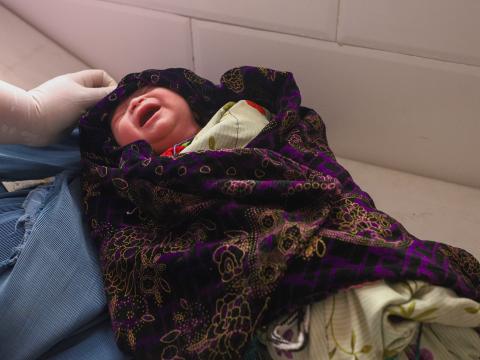
By: Ria Mohammad Rehaa, Communications Manager
Faryab Province, Afghanistan – It is 8:50 AM, and a rickshaw arrives at the clinic door at high speed, leaving a line of dust behind. A man, sharing the driver’s seat, quickly jumps out and runs to the back, urging the passengers inside to get off. Two ladies wearing burqas step out, extending their hand to help another woman – she is pregnant.
With one woman holding each of her hands over their shoulders, they carefully guide her into the clinic yard. A midwife rushes out from the corridor, swiftly leading them into a room labelled ‘Delivery Room.’
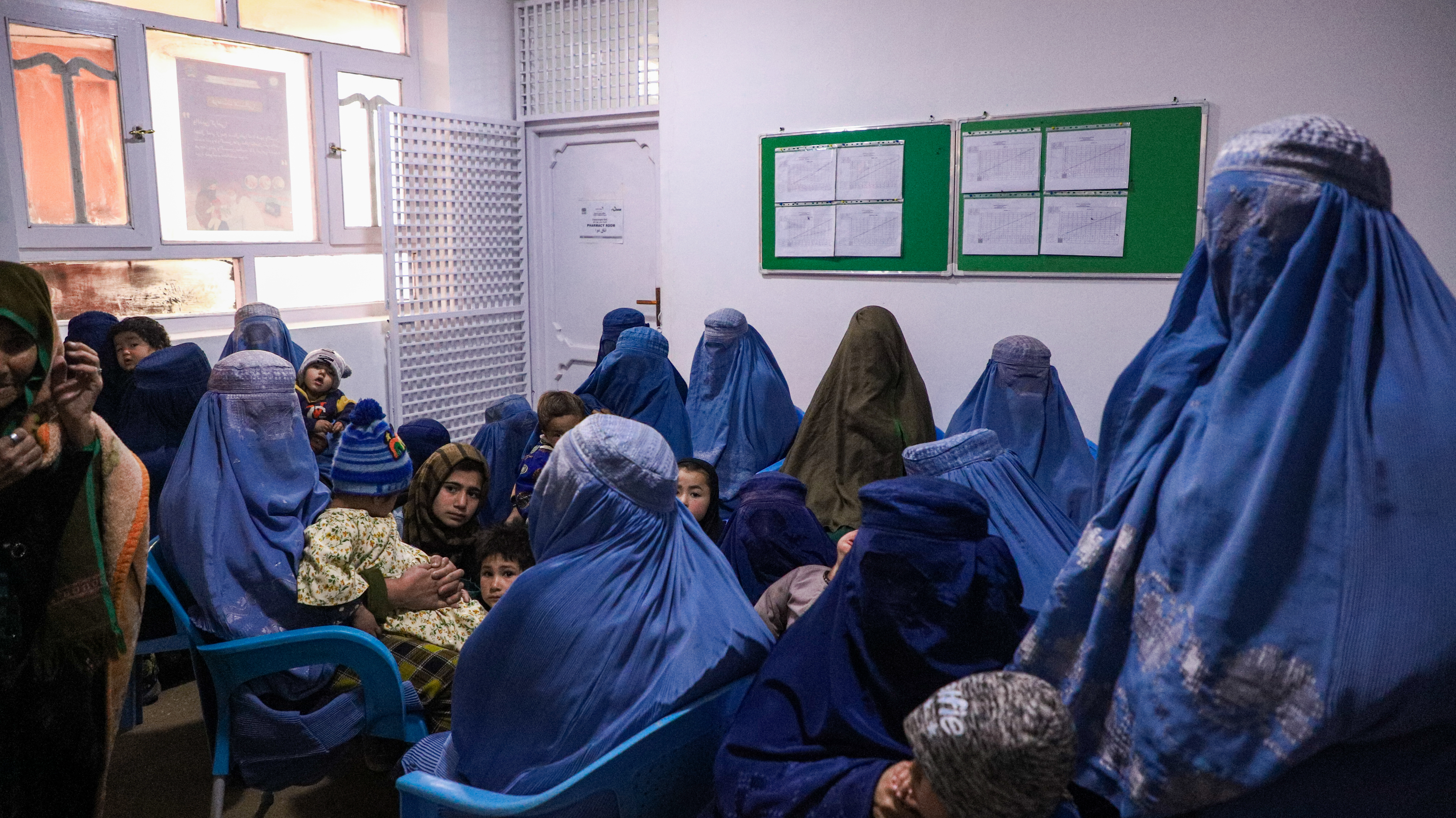
The man accompanying them is Abdul Khaleq, whose wife, Freshta*, is about to give birth. Walking impatiently between the yard and the men's waiting room, he sometimes sits on a chair designated for those accompanying an ill person. Other times, he chats with other men, his hands tucked into the long sleeves of his Chapan – a traditional quilted or embroidered coat, commonly worn in northern Afghanistan for warmth and style.
A few hours later, Rahela*, Abdul Khaleq’s sister-in-law, opens the delivery room door and looks around for him. Within seconds, she spots him. He immediately stands up and approaches her. With a smile on her face, she shares the good news. “Congratulations with shirini [sweets—a reward for the good news]. You’re the father of another daughter,” says Rahela.
Forty-two-year-old Abdul Khaleq is now a father of five – four daughters and one son. “I feel blessed and happy,” he says, his vivid face in tears.
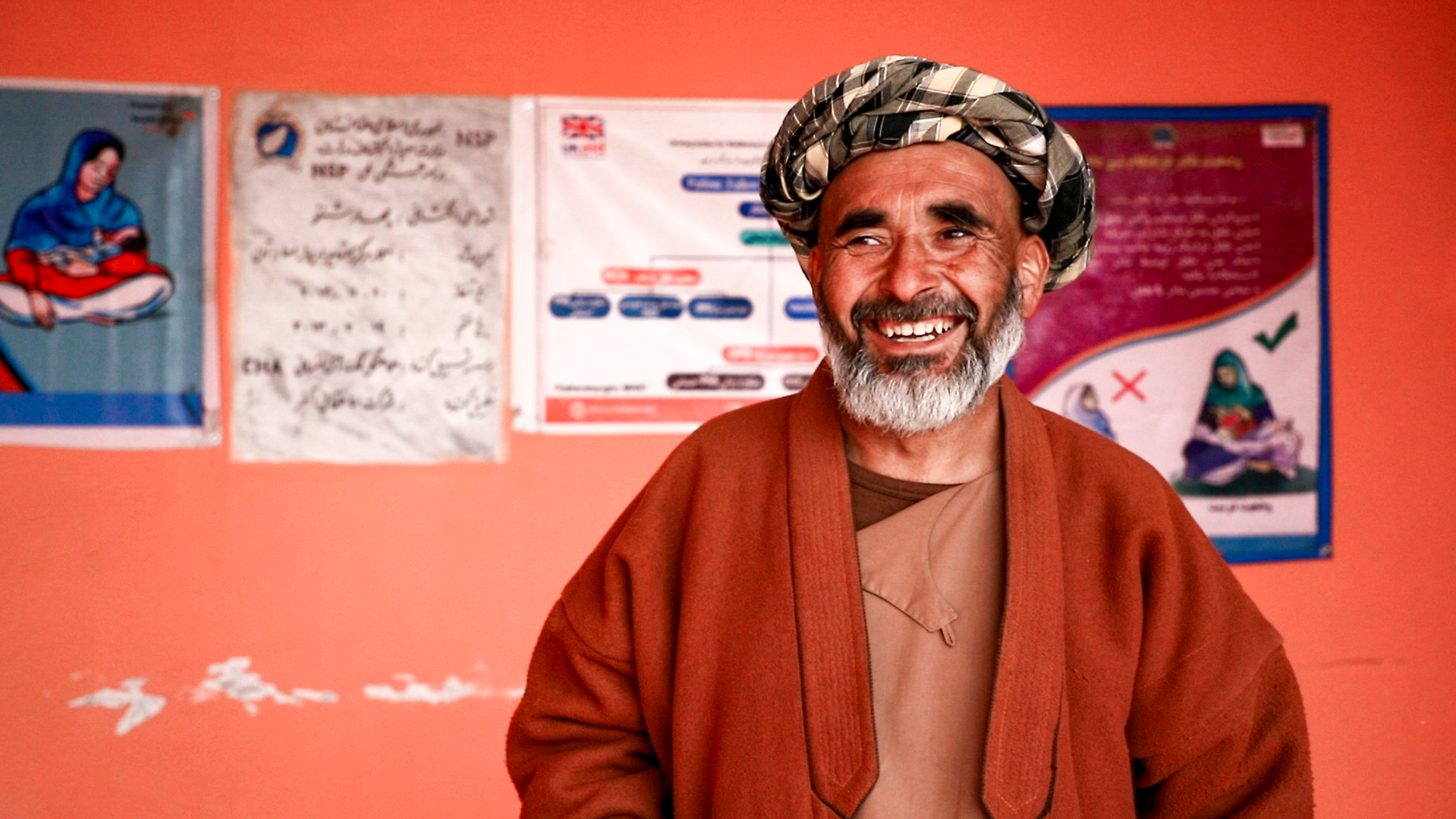
Inside the delivery room, the newborn baby girl lies on the bed with her eyes closed, her cries echoing through the room. The midwife, with pride and joy on her face, picks up the baby and hands her to Freshta for breastfeeding. The atmosphere is one of relief and celebration, but it is also a reminder of how different this moment could have been.
This village, where they live, had no health centre previously. In the past, people who got sick had to be taken either to the district centre or to Maimana, the capital of Faryab province. “On the one hand, we didn’t have a clinic in our village,” Abdul Khaleq explains. “On the other hand, we couldn’t afford transportation to Maimana.”
Abdul Khaleq is a daily laborer with an insufficient income. The majority of villagers are farmers, earning barely enough to survive. If a family member fell ill, financial constraints often limited their ability to seek treatment. Children and pregnant women suffered the most due to lack of access to healthcare services. “Because we didn’t have a clinic in our village, mothers and their babies would suffer, and in some cases, they would lose their lives,” Rahela goes on. “My sister-in-law [brother’s wife] and her child lost their lives during delivery because they couldn’t access health services.”
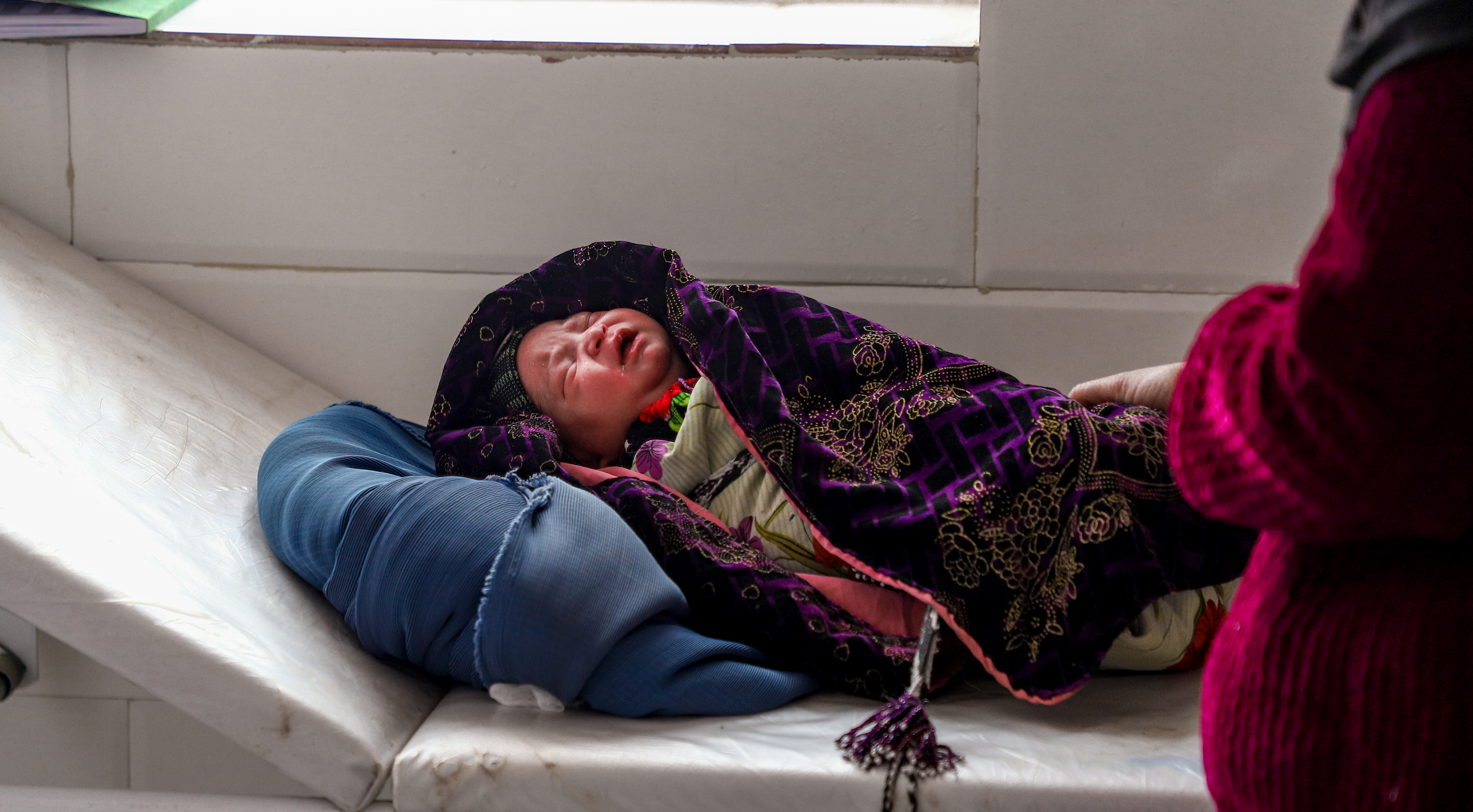
Mortality rates among women and children in the village remained high until recently, when World Vision Afghanistan established a clinic under the Driving Action for Wellbeing to Avert Mortality (DAWAM) project, funded by the Foreign Commonwealth and Development Office (FCDO).
During her pregnancy, Freshta received essential healthcare services and counselling—Antenatal Care (ANC)—from World Vision’s clinic. While the clinic building is government-owned, World Vision provides critical support by supplying staff, medicine, and ensuring access to healthcare for the community. She was also enrolled in the nutrition programme, receiving nutrition packages and support for pregnant and lactating women to ensure the well-being of both mother and child.
The entire family is grateful for the support they receive. “If this clinic wasn’t here, Freshta would have had to deliver at home,” Rahela adds, “which would have put both the mother and baby at risk.”
The newborn baby has not yet been named. In Afghan communities, it is customary for a newborn to be taken to the Mullah Imam or an elder, who recites the Azan (call to prayer) in the child’s ears before selecting an appropriate name.
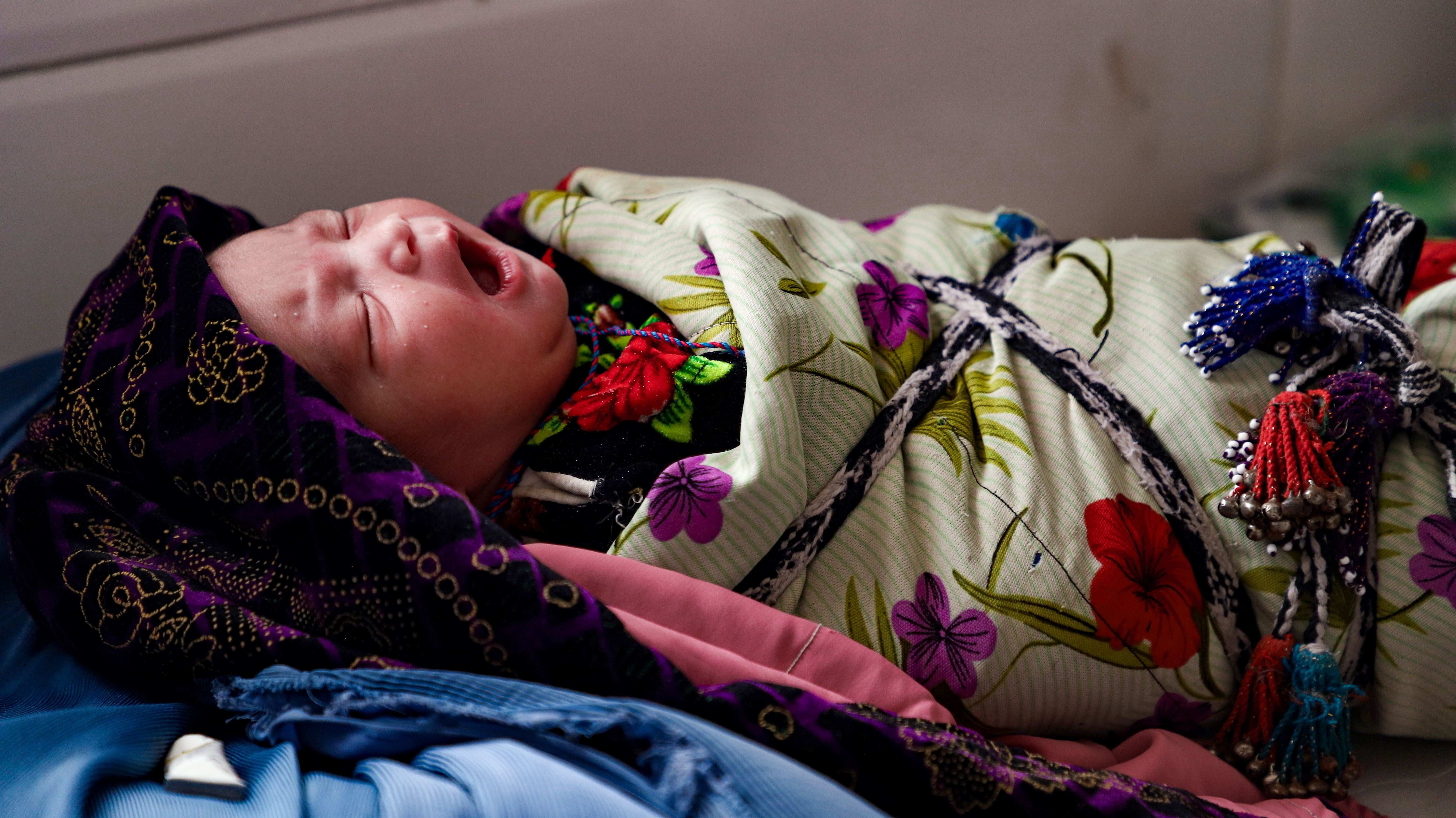
Through the FCDO-funded DAWAM partnership, our efforts aim to reduce maternal and child mortality rates through health, nutrition, and WASH interventions across seven provinces of Afghanistan.
*Names are changed to protect identities